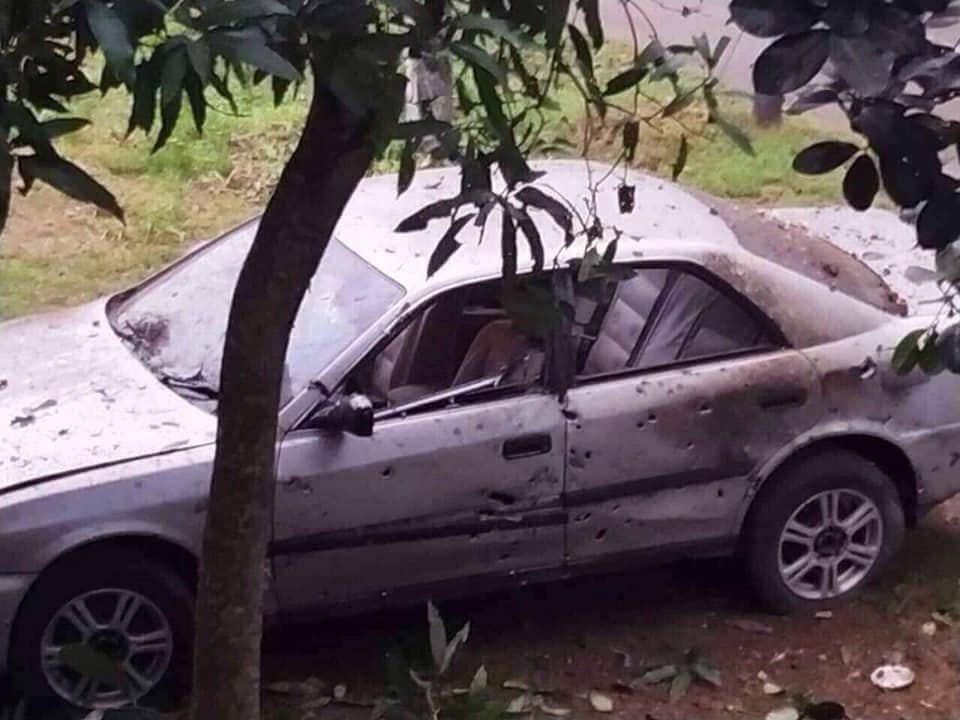
Myanmar's military was today fighting rebels who mounted an unprecedented strike at an army academy killing at least one, apparently in retaliation for massive drug seizures.
Ethnic armed rebel groups have for decades fought against the military—and often between themselves—for land and resources in Myanmar's east.
Experts say the area is now the world's largest meth-producing region, funding the complex web of conflicts.
Thursday's brazen assault targeted Pyin Oo Lwin, a tourist town near Mandalay, that is also home to barracks teeming with soldiers receiving training.
Images from local media showed burned out cars riddled with bullet holes and damaged buildings showered in debris.
The Taaung National Liberation Army (TNLA) said the group launched attacks in retaliation for military offensives.
"Fighting took place at five places this morning," TNLA spokesman Major Mai Aik Kyaw told AFP, but clashes were ongoing.
One strike targeted the Defence Service Technology Academy (DSTA) where military engineers are trained, while another hit a police station near the region's landmark Gokteik bridge, a rail route popular with sightseers.
Mai Aik Kyaw said the group mounted the attacks in coordination with the Myanmar National Democratic Alliance Army (MNDAA) and Arakan Army (AA).
The AA is currently fighting the military, or Tatmadaw, in the conflict-scarred western Rakhine state, but is in a tight alliance with the other rebel groups.
Military spokesman Brigadier General Zaw Min Tun confirmed all five attacks, saying one civilian had so far been killed in the crossfire and two members of the security forces had been injured.
"We assume they carried out the attacks because the Tatmadaw seized tonnes of drugs a few weeks ago," he told AFP.
In July, narcotics police were met with heavy artillery fire when they launched a major drugs crackdown in Kutkai township in neighbouring Shan state.
Huge stockpiles of chemicals as well as millions of dollars worth of ice, the highly addictive crystalised form of meth, were seized in a single raid.
The "Golden Triangle"—a lawless wedge of land intersecting China, Myanmar, Thailand, and Laos—has long served as a base for opium and heroin production.
A ceasefire in Shan state declared by the military in December is officially due to finish in two weeks even though clashes with armed groups have continued.
China's plans to invest in major infrastructure projects have added another dimension to the conflict with groups vying for control of increasingly valuable territory.

